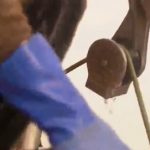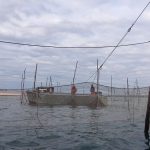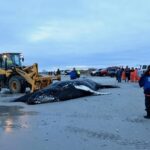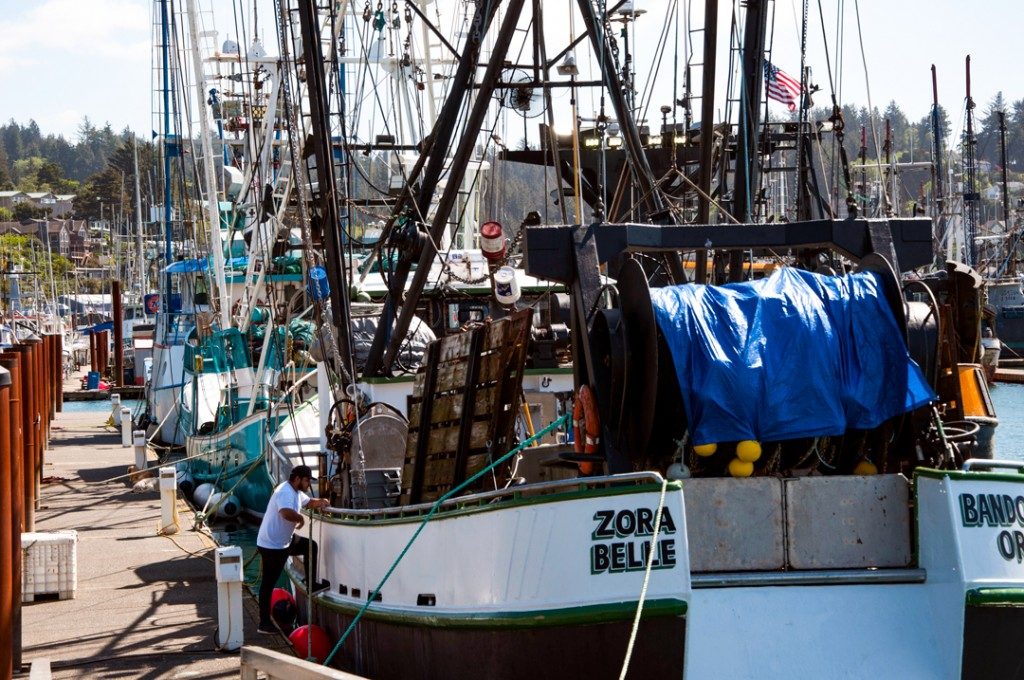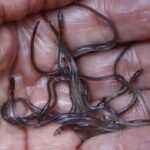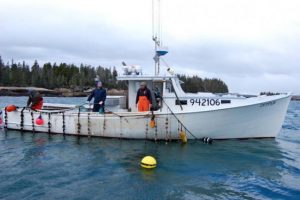Tag Archives: seal
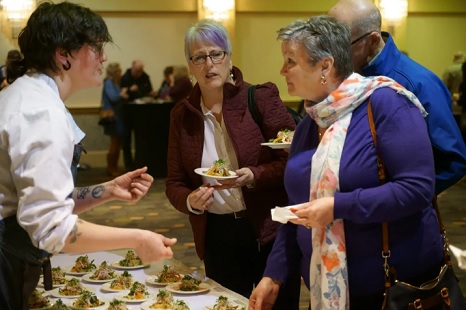
You can cook seal a lot of ways, and they’re actually delicious. Honest.
Seal meat is hard to describe. It’s dark and marrowy, gamy and fishy all at once. While the fat in pork and beef is marbled and intramuscular, seal fat is an omega 3-laden liquid oil that permeates the meat, which means the whole thing is rich in nutrients and has a silky-smooth texture. The market for seal meat is relatively small. Thousands of seals are killed for pelts, and that healthy seal fat is transformed into oil and capsules, but only pockets of people are enjoying the meat. My instinct, when presented with a flipper, is to make a pie. >click to read< 09:26
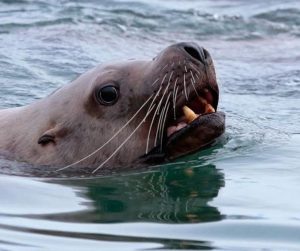
Seal hunt proponents hope new evidence sways skeptical fisheries officials
Three new studies being prepared for publication suggest that recovered populations of seals and sea lions in west coast waters could be having an outsized impact on the survival of the three most troubled Pacific salmon species — chinook, coho and sockeye. “Most of the drop in survival of chinook and coho in the Georgia Strait since the 1980s is likely due to seals eating juvenile fish during their first summer in the ocean,” said Carl Walters, a professor emeritus at UBC’s Institute for the Oceans and Fisheries. Estimates suggest that seals may be consuming about five million juvenile coho each year, or about half of the juveniles that enter the area from streams and rivers. Up to 15 million chinook juveniles meet the same fate, about one third of that population. >click to read< 09:21
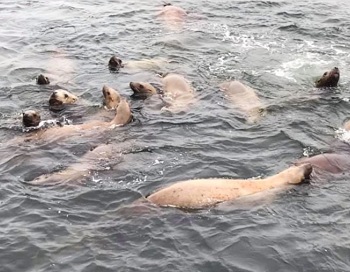
FurCanada open house will kickstart campaigns for a seal, sea lion and sea otter commercial fishery in British Columbia
The fur is set to fly in Nanaimo this weekend, with an open house to kickstart campaigns for a seal, sea lion and sea otter commercial fishery in British Columbia. FurCanada, a Vancouver Island company, hopes the event on Dec. 14, will raise awareness about the overpopulation of seal and sea lions which are decimating B.C.’s endangered and threatened chinook salmon stocks. Thomas Sewid, who is President of Pacific Balance Marine Management, which is the organization leading the development of the seal, sea lion and sea otter industry estimates that of the 27 million chinook smolts produced a year in the Salish Sea (wild and hatchery) the pinnipeds are consuming about 24 million of them. >click to read< 19:53
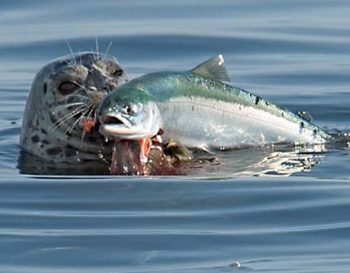
Salmon are going the way of the buffalo! West coast group campaigns for seal, sea lion harvest
A group lobbying for a commercial harvest of harbor seals and sea lions on the West Coast is encouraged after meeting with federal fisheries officials. Richmond-based Pacific Balance Pinniped Society is pressing Fisheries and Oceans Canada (DFO) to consider a managed Indigenous fishery for seals and sea lions. Society members are convinced that a pinniped explosion is a contributing factor to declining populations of wild salmon and other finfish along the B.C. coast. “Our salmon are going and will go the way of the buffalo unless we do something,” said Thomas Sewid, founder of the society. “It’s not just fish, it’s a way of life.” >click to read<12:32
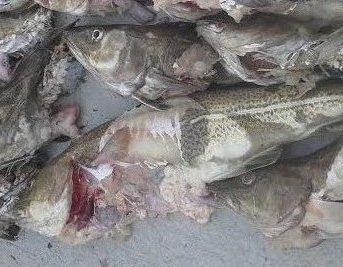
Could a seal cull help cod recover? It’s not so simple, scientist says
The equation seems simple: seals eat fish, fish are declining, kill the seals, fish recover. But experts warn that many factors need to be considered before drastic measures are taken. With talk revived about ending the recreational fishery, some believe a seal would be a more effective way to help cod stocks recover. But is a cull the answer to our fish stock problem? (HELL YEAH!) Eldred Woodford of the Canadian Sealers Association is taking an even stronger stance, and calling for an all-out seal cull.,, Alejandro Buren, a research scientist at the Department of Fisheries and Oceans, says many factors are at play when looking at food web relationships. >click to read<20:28
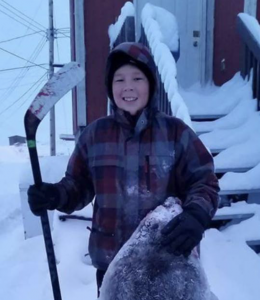
An Inuk Boy Who Caught A Seal With His Hockey Stick Is Peak Canada
Forget gingerbread Parliament Hill and Shania Twain’s Grey Cup entrance on a dog sled — a photo of a grinning Inuk boy who just caught a seal using a hockey stick might be the most Canadian thing we’ve seen this year. Ryder Aviogana, who is from Kugluqtuq, Nunavut, was a water boy at the Kitikmeot Cup hockey tournament two years ago, according to a comment on the viral photo that’s been shared by CBC Nunavut and across Reddit. But, given his recent stick handling, he might be ready to graduate from water boy to on-ice player. click here to read the story 10:29
Nunavut wins EU exemption for seal hunt
 Nunavut sealskins now qualify for an exemption to the European Union’s ban on seal imports, the territorial government announced Friday. The EU has banned the import of seal products since 2009, but allows imports from hunts that certified as being conducted by indigenous people. “This is an important step towards the recognition of sealing as a way of life for Inuit,” said Nunavut Environment Minister Johnny Mike in a release. “We must ensure that communities benefit in a tangible way from this positive development by continuing to promote the recovery of international seal markets.” Read the rest here 08:38
Nunavut sealskins now qualify for an exemption to the European Union’s ban on seal imports, the territorial government announced Friday. The EU has banned the import of seal products since 2009, but allows imports from hunts that certified as being conducted by indigenous people. “This is an important step towards the recognition of sealing as a way of life for Inuit,” said Nunavut Environment Minister Johnny Mike in a release. “We must ensure that communities benefit in a tangible way from this positive development by continuing to promote the recovery of international seal markets.” Read the rest here 08:38
South Australia Wants to Solve Their Seal Problem with Underwater Bombs
 The long-nosed fur seal population in South Australia’s Coorong region has been getting out of hand for a while now. The state population now tops 100,000, and the South Australian government is considering using explosives to scare them away from commercial fishing areas. Unsurprisingly, animal rights groups aren’t happy about it. Calling the seals “rats of the sea,” Liberal MP Adrian Pederick originally proposed a culling program. So Minister Hunter is looking into alternative solutions, one of which being seal-deterring explosives. Known as ,,, Read the rest here 09:38
The long-nosed fur seal population in South Australia’s Coorong region has been getting out of hand for a while now. The state population now tops 100,000, and the South Australian government is considering using explosives to scare them away from commercial fishing areas. Unsurprisingly, animal rights groups aren’t happy about it. Calling the seals “rats of the sea,” Liberal MP Adrian Pederick originally proposed a culling program. So Minister Hunter is looking into alternative solutions, one of which being seal-deterring explosives. Known as ,,, Read the rest here 09:38
Seal Meat: Veal of the Ocean
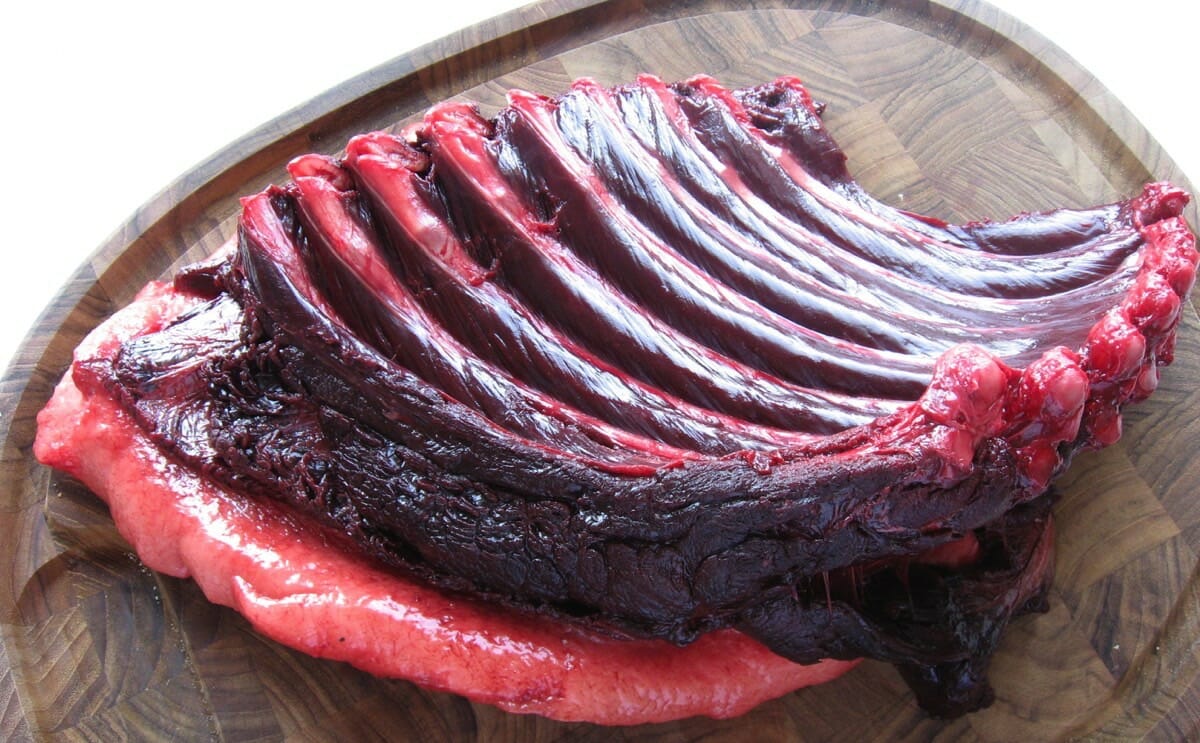 “The meat is pretty much not like much else you’ve ever eaten,” says Perrin, chef/owner of The Mallard Cottage, a restaurant on the forefront of the new Newfoundland cuisine. “It has that kinda gamey, iron-y, almost kind of organ meat flavor. But when it’s fresh, it has a little taste of the sea. Read the rest here 19:09
“The meat is pretty much not like much else you’ve ever eaten,” says Perrin, chef/owner of The Mallard Cottage, a restaurant on the forefront of the new Newfoundland cuisine. “It has that kinda gamey, iron-y, almost kind of organ meat flavor. But when it’s fresh, it has a little taste of the sea. Read the rest here 19:09
Great White Sharks Are Back – Has a marine mammal conservation program become too successful?
Gordon Waring, a seal specialist at the NOAA, cautions that marine biologists don’t actually know how seals interact with fisheries, and so far there is no sign that they are eating more than their habitat can support. (seal specialist??,,don’t actually know??) wow. continued@ slate

































